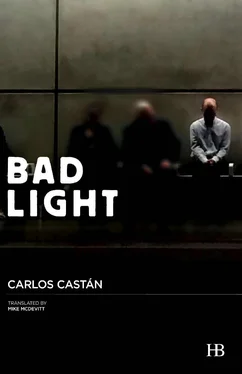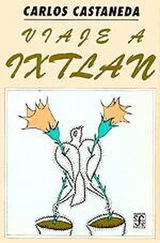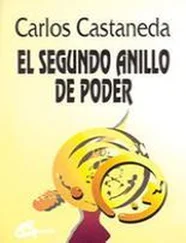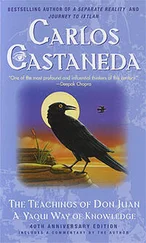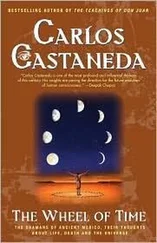Carlos Castán - Bad Light
Здесь есть возможность читать онлайн «Carlos Castán - Bad Light» весь текст электронной книги совершенно бесплатно (целиком полную версию без сокращений). В некоторых случаях можно слушать аудио, скачать через торрент в формате fb2 и присутствует краткое содержание. Год выпуска: 2016, Издательство: Hispabooks, Жанр: Современная проза, на английском языке. Описание произведения, (предисловие) а так же отзывы посетителей доступны на портале библиотеки ЛибКат.
- Название:Bad Light
- Автор:
- Издательство:Hispabooks
- Жанр:
- Год:2016
- ISBN:нет данных
- Рейтинг книги:5 / 5. Голосов: 1
-
Избранное:Добавить в избранное
- Отзывы:
-
Ваша оценка:
- 100
- 1
- 2
- 3
- 4
- 5
Bad Light: краткое содержание, описание и аннотация
Предлагаем к чтению аннотацию, описание, краткое содержание или предисловие (зависит от того, что написал сам автор книги «Bad Light»). Если вы не нашли необходимую информацию о книге — напишите в комментариях, мы постараемся отыскать её.
Carlos Castán
Bad Light
Bad Light — читать онлайн бесплатно полную книгу (весь текст) целиком
Ниже представлен текст книги, разбитый по страницам. Система сохранения места последней прочитанной страницы, позволяет с удобством читать онлайн бесплатно книгу «Bad Light», без необходимости каждый раз заново искать на чём Вы остановились. Поставьте закладку, и сможете в любой момент перейти на страницу, на которой закончили чтение.
Интервал:
Закладка:
In the folders containing sent and received messages, it turned out that N stood for Nadia. They had not exchanged many letters. Right from the start, they must have switched to the telephone as their standard means of communication, perhaps so as not to leave behind any traces of the sort I was sniffing after. In any event, it was clear that, quite unlike Jacobo, Nadia was a woman of few words and did not feel entirely at home setting her thoughts down in writing. The first message, from him to her, dated back some eight months previously:
Nadia, you’ll have noticed the clumsy, last-minute way in which I asked you for your telephone number and this email address to which I’m writing, and the foolishness of my excuse will not have escaped your attention: we both know that there are a thousand different ways to get your hands on the books I agreed to lend you. They’re everywhere. Everyone has a copy. Perhaps they’ve even formed part of your collection for years now, and at this very moment you can see their spines from your chair as you read my email, and it may also be, in fact it would not surprise me in the slightest, that it is I who does not have them, or indeed ever did. I couldn’t take my eyes off you at dinner, but you know that already. At this point I can only hope that our fellow diners, your friends in particular, didn’t pick up on the fact that I didn’t give a damn about the others or their conversations. No doubt you noticed that I’ve been around the block a few times. I’m a guy with a past, as the saying goes, not that that makes it any easier to write a letter of this sort. For this is a letter, is it not? Much as it might reach you across mysterious airwaves and through all that jumble of cables and sockets. I always tremble when faced with love. Do not be afraid of the word I use. It’s for want of a better one with which to understand each other, though it might not be altogether inappropriate when I think of how you’ve occupied my thoughts since the night of the dinner, of how I made my way home whistling in happiness and terror at one and the same time. But fear not, though I might now offer you my entire life, without a thought for how appealing or not such a gift might be, there’s no denying that it doesn’t amount to much in terms of quantity. At a certain age, to offer one’s life barely amounts to a thing. Let me rephrase, if I may: I always tremble when faced with a story that is beginning, as much when I was a schoolboy knee-high to a grasshopper as tonight while writing to you, now old, with hairy knuckles and glasses without which I’d barely be able to see beyond the tip of my nose, operated on a thousand times, half-rotten on the inside. I tremble above all when, as now, the matter is at that stage in which, on paper at least, it could still be all or nothing, when I might end up handing you what remains of my desire and my time from here on in until the curtail falls, or I might never see you again. Without, naturally, turning my nose up at any of the marvelous alternatives that lie somewhere in between, which involve you dropping by my apartment once in a while to listen to music, just like that, lying down on this very couch on which your presence is now missed, letting me undress you. But the fact is that there is a coin in midair, it’s been falling in slow motion for days now, and that’s what makes me tremble and implore who knows what gods not to let it fall on the side that condemns me to simply dreaming of you .
I have seen Jacobo put a great deal more effort into letters of this sort. There was a time when he’d show me almost every one, and there’s no doubt that, in comparison, this one was a slovenly, half-hearted attempt. It struck me as odd that he made no mention of the inner world that could sometimes be glimpsed in her gaze, a golden oldie if ever there was one, or of how he believed he had caught sight in those stormy depths of the reasons he needed to carry on breathing, of the challenge of making up for a past brimful of hurt and of scheming. It took Nadia four days to reply, and she finally did so in a handful of lines that I reread several times between glances at her photo.
You’re crazy, completely crazy. The thing is, I’ve been giving this whole matter some thought for a few days now, and I think I want to see you. Placing the dreadful fear I feel and that you cannot understand right now on one side of the scales, and, on the other side, the disgust I feel toward my life the way it is right now, I think I do, I want to see you. But do me a favor and forget all of that bullshit about love right now, that much I can tell you. I think we could be happy with just paying lip service to it, rolling around nearby it. Don’t even think about calling me. Let me call you. I’ll call when I can find the words. More words, I mean, apart from these ones that are just to tell you to wait for me .
The following messages came in the wake of a first meeting between the two of them that must have been a beautiful, heady encounter. I realize we are talking about a perfect stranger. I realize we are talking about a friend who had died just days before, his body still warm in its grave, as the saying goes. It matters little; though there’s no accounting for any of this, what I felt was a lot like jealousy.
II. NO ONE
No one kisses like the desperate.
MANUEL VILAS15 (nadia)
It wasn’t long before I wrote to Nadia. In my head I drafted email after email, how many I couldn’t say. I’d head out for a stroll and I’d be writing to her. I’d duck into a bar to grab a coffee and I’d be writing to her. I’d be watching a movie and writing to her at the same time, letting myself be swept along in a frenzy of words. Also in my head I tore up sheet after sheet of paper before kicking them to one side. Then I’d start afresh. Dear Nadia. Esteemed Nadia. Just the name Nadia and nothing else. You don’t know me. I’m a friend of Jacobo’s. I’m not sure how to tell you this. I don’t know if you’ve heard the news of his death. He was murdered, in fact. If you did know, then you’ll know how dreadful it was. If you’re finding out now, if these words are the first you’ve heard, I’d like you to imagine them accompanied by a warm embrace for you. I’d like to see you. I don’t understand a thing. I’d like to see you so that we can talk.
She called me that very night. I was lying on the couch and eating a pizza while watching a documentary about double agents during the Second World War when the phone rang. It was a minute or two after midnight. I turned down the volume on the TV, and Nadia’s voice reached me over a backdrop of black-and-white images of soldiers striding through the snow. It’s me, she said. She did not identify herself with her name. She simply said it’s me , as if there were no way I might be expecting any other call. As if she were my wife or something. She did not, as I had imagined, have a Russian accent. In fact, she had no accent at all, and she spoke very softly, as if she were afraid of waking someone. It was one of those rather catlike voices, with a natural inclination toward whispering that make you rue the fact that you are not on sufficiently intimate terms to change the subject all of a sudden and come out with the sort of lovey-dovey drivel spouted by lovers who live far apart and who call each other every day after dinner, without much to say, their hands toying with the buttons on their pants. I told her how events had unfolded, what little I knew, in reality, while the TV screen showed bombs falling from the skies of London and Dresden and columns of prisoners taken on the Russian front and marched semi-barefoot toward the trucks, their eyebrows white from the frost. Nadia could barely get a word out. She stuttered a little, and her silences were so lengthy it sometimes seemed to me as if the line had gone dead. I had no wish to lie to her about how I had come across her name. After thanking me again for the information in a somewhat stilted, almost inaudible fashion, she seemed in a hurry to hang up. Though she made no protest in that moment, it was clear that she did not like the idea of a stranger reading her letters one bit. Without much conviction, she began to outline a farewell that I was in no mood to hear. The unusual circumstances in which we were talking for the first time, the brutality of the murder, and all the rest besides freed me from any need to stand on ceremony, so I came straight out and asked her who she was. Who are you, Nadia? Where did you come from? The TV was now showing how by applying a special product with a paintbrush, messages written by spies in invisible ink would appear. And also how much information can fit inside a single typewritten period when looked at later under a microscope, everything you need to know about the enemy’s plans in less than one square millimeter. Somewhat half-heartedly, Nadia began to explain how she and Jacobo had met, the “friendly” relationship they’d had, making light of the matter — a meal, the odd stroll here and there, three or four conversations, in some of which my name had cropped up. There were cardboard dummy planes and tanks at the Pas De Calais in an attempt to throw the Germans off the scent and keep them away from the Normandy coast. Nothing was what it seemed, let alone what it claimed to be, as I listened to Nadia’s voice on the other end of the line. Her breathing was the biggest giveaway, the alarm in her voice. I want to see you, Nadia. I want to see you, now that the Spanish troops are all set to cross the Oder and Stalin is bellowing from high up on a balcony draped in flags, now that Eva Braun, in the heart of the Alps, is shooting a full-color film of her nieces showing off their new dresses, playing with a ball and smiling for the camera. I want to see you, now that the diggers are beginning to unearth the dead bodies at Auschwitz and the snow is starting to melt in Leningrad. I want you to tell me what’s going on here, I want to see those thighs in the photo up close, to reach out and touch them, I want you to come wearing that same dress, with your Greek sandals, I want to hear what the tremor in your voice sounds like in person and to see if it has anything worth listening to in the midst of these nights that are shackled to one another, each one strangled by its own chain, because you know what? I’m on my own now, and I’m pretty drunk tonight, and I’m speaking to you from an apartment that festers in darkness at all hours, no matter whether I turn on every light and fling the windows wide open, for it’s as if the darkness is born beneath the beds, right where the dead bodies would sleep in your childhood and you’d look and it seemed there was nothing there, but they were there, all right, and they burst forth now, so late in the day, and the darkness that springs forth from down there below then clings to the walls, and is oily, too, and it sticks to the fingers and to the mirror and fills everything with shadows and cannot be removed with detergents of any type or gusts of wind or any music whatsoever, an apartment in which everything right now is upside down, upturned drawers emptied onto the dining room table, books that might or might not burn in the bathtub, I haven’t decided yet, albums and notebooks piled up on the floor, ready for the day when I can bring myself to look at them, to turn the pages without closing my eyes or looking away. Come, for Berlin is now a vast expanse of smoldering ruins, the survivors make their way through the rubble, their eyes glazed over, and everyone is looking for bread and counting the dead, Nadia, you who hold between your legs the key to the secret, the meaning of the meaninglessness, and all the light I’d like to drink tonight. A dead man who slipped through the same hole through which I’d say my life is ebbing away as we speak, as I munch on a now cold pizza and watch as the Jews, their heads bowed, march toward the gas chamber, and everything is sinking, now and at the same time in the past, into the same mud, outside time, and I’m talking to you and you’re telling me nothing.
Читать дальшеИнтервал:
Закладка:
Похожие книги на «Bad Light»
Представляем Вашему вниманию похожие книги на «Bad Light» списком для выбора. Мы отобрали схожую по названию и смыслу литературу в надежде предоставить читателям больше вариантов отыскать новые, интересные, ещё непрочитанные произведения.
Обсуждение, отзывы о книге «Bad Light» и просто собственные мнения читателей. Оставьте ваши комментарии, напишите, что Вы думаете о произведении, его смысле или главных героях. Укажите что конкретно понравилось, а что нет, и почему Вы так считаете.
